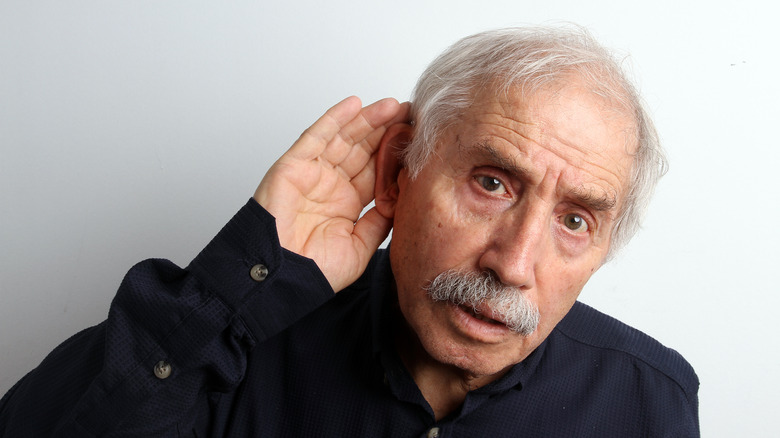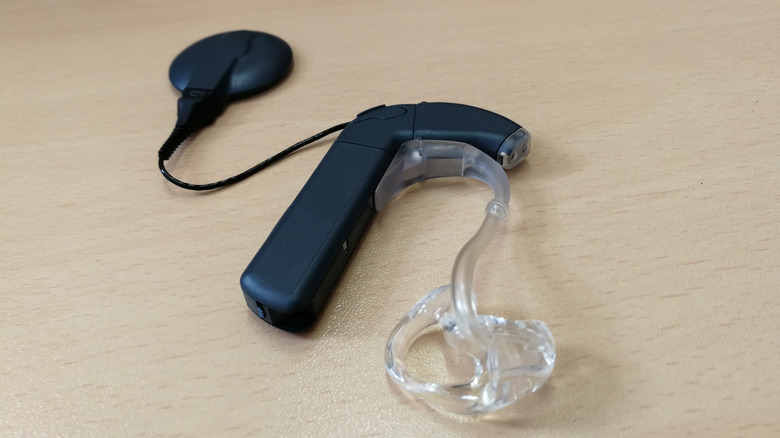Could Getting Cochlear Implants Reduce Your Chances Of Developing Dementia?
Age-related hearing loss is quite common in older people, according to the National Institute on Aging. In fact, about one-third of people between the ages of 65 and 74 have some degree of hearing loss. In addition, almost half of those over 75 have hearing problems.
On top of hearing issues, HealthinAging.org notes that up to 7% of people 60 and older have dementia, a condition that causes a decline in memory, cognition, and reasoning.
According to Johns Hopkins Bloomberg School of Public Health, it's likely that hearing loss and dementia are linked. One reason that this might be so is because untreated hearing loss can lead to something called auditory deprivation (via HealthyHearing). This means that parts of the brain that were once engaged in hearing shrink, which can cause the brain to lose its ability to grasp and process certain types of information.
This has led researchers to speculate that restoring hearing with cochlear implants might help prevent dementia in older people.
Cochlear implants may be linked to improved cognition
Could it be helpful for older adults with hearing loss to receive cochlear implants? A 2019 study published in Frontiers in Neuroscience suggests that cochlear implants might help prevent dementia. The study authors found that increased hearing loss and age were predictive of worse mental functioning. However, researchers saw improvement in most of the study participants when they followed up with them 18 months after they had received a cochlear implant.
That said, another study from 2018 indicates that cochlear implants may not be able to completely compensate for cognitive decline. It found that older adults with severe hearing loss who had been given implants still had worse cognitive function than people with normal hearing (per Frontiers in Neuroscience).
The Triological Society states that older people usually experience an improvement in general quality of life within the first year following implantation, including better cognition and decreased social isolation and depression. They note that cochlear implants have not yet been specifically studied in dementia patients, and that ultimately, larger and longer studies are needed to help us understand how hearing loss and dementia are linked. They do say, however, that cochlear implants are quite safe and becoming more commonly used by older adults.


